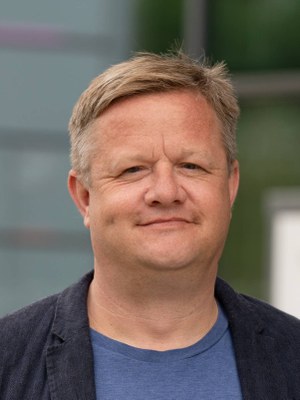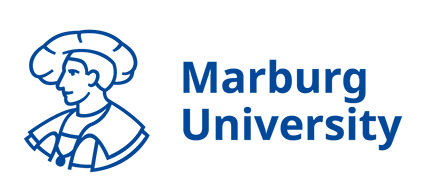Main Content
Team
The Microbes-for-Climate initiative brings together an interdisciplinary team of scientists at all career stages that is already well-connected through collaborative research in different centers, including the SYNMIKRO Center for Synthetic Microbiology and the Microcosm Earth Center, as well as different internationally, nationally and state-funded consortia (e.g., the DFG research training group 2937, Microbial Nucleotide Metabolism and the LOEWE priority programs Tree-M and RobuCop ).
Our principal investigators have diverse backgrounds in chemistry, biology, physics and engineering, but are united in their interest to understand the interaction of microbes with their environment across all levels. With an unparalleled, comprehensive expertise in biochemistry, evolutionary and synthetic microbiology, our team is well set to study the role of microbes in the past (Research Focus: Microbes as Drivers), the presence (Research Focus: Microbes as Responders) and the future (Research Focus: Microbes providing Solutions) of the global carbon cycle.
The Microbes-for-Climate team of principal investigators includes 6 ERC Starting, and 4 ERC Advanced Grantees, two Heinz Maier-Leibnitz Price winners, two members of the European Academy of Microbiology, one EMBO member, and one member of the National Academy of Sciences, Leopoldina.
Beyond the level of Principal Investigators, Microbiology in Marburg has a long and outstanding track-record in developing the next generation of scientists. The Microcosm Earth Center, the Marburg University Research Academy and the Marburg School of Microbiology (which includes the International Max Planck Research School µLife and the DFG research training group 2937, Microbial Nucleotide Metabolism) provide tailored scientific training, soft-skill courses, and individual mentoring for scientists at all career stages. The research of postdoctoral and doctoral researchers is regularly awarded (inter)national prices, and the Marburg iGEM team at the SYNMIKRO Center for Synthetic Microbiology has won two times the overall price of the iGEM competition (2018 and 2021).
Please refer to these pages for video interviews and research focus of our team

Gert Bange
Structural, Systems & Cell Biology of microbial stress response
Research Focus: Microbes as Drivers; Microbes as Responders

Anke Becker
Synthetic Microbiology & Molecular Genetics of gene regulation and stress adaptation of bacteria
Research Focus: Microbes as Responders; Microbes providing Solutions

Ivan Berg
Microbial Physiology, novel CO2-fixing pathways in microbes
Research Focus: Microbes as Drivers; Microbes as Responders

Ilka Bischofs-Pfeifer
Molecular Biology of bacterial stress response and CH4 production
Research Focus: Microbes as Responders; Microbes providing Solutions

Helge Bode
Biosynthesis & function of natural products in environmental interactions; Synthetic Microbiology
Research Focus: Microbes as Responders; Microbes providing solutions

Tobias Erb
Biochemistry & Synthetic Biology of microbial carbon and CO2-metabolism
Research Focus: Microbes as Drivers; Microbes providing Solutions

Alexander Goesmann
Microbial Bioinformatics
Research Focus: Microbes as Responders; Microbes providing Solutions

Peter Graumann
Molecular dynamics and Cell Biology of bacteria during stress adaptation
Research Focus: Microbes as Drivers; Microbes as Responders

Georg Hochberg
Evolutionary Biochemistry of protein complexes in CO2-conversions
Research Focus: Microbes as Drivers; Microbes as Responders

Katharina Höfer
Epitranscriptomics mechanisms in bacteria; Synthetic Microbiology
Research Focus: Microbes as Responders; Microbes providing Solutions

Judith Klatt
Physiology & Biogeochemistry of microbial carbon cycling in Earth´s past and present
Research Focus: Microbes as Drivers; Microbes as Responders

Julia Kurth
Biochemistry and Physiology of methane conversion in Archaea
Research Focus: Microbes as Drivers; Microbes as Responders

Martina Preiner
Proto-metabolism & Geobio-chemistry of CO2-conversion
Research Focus: Microbes as Drivers; Microbes providing Solutions

Lennart Randau
Small non-coding RNAs in Procaryotes, Synthetic Microbiology
Research Focus: Microbes as Responders; Microbes providing Solutions

Johannes Rebelein
Structure-function of metallo-enzymes in carbon conversion; Synthetic Microbiology
Research Focus: Microbes as Drivers; Microbes providing Solutions

Jan Schuller
Structure & Biochemistry of CO2-fixing enzymes under changing environmental conditions
Research Focus: Microbes as Drivers; Microbes as Responders

Victor Sourjik
Systems Biology and Molecular Biology of environmental sensing and adaptation; Synthetic Microbiology
Research Focus: Microbes as Responders; Microbes providing Solutions

Martin Thanbichler
Spatiotemporal organization & Cell Biology of bacteria during stress adaptation
Research Focus: Microbes as Responders

Olalla Vázquez
Chemical Biology & tools for Synthetic Microbiology
Research Focus: Microbes as Responders; Microbes providing Solutions

Felix Willmund
Molecular Biology of stress acclimation of photosynthetic microbes to global warming
Research Focus: Microbes as Responders; Microbes providing Solutions


